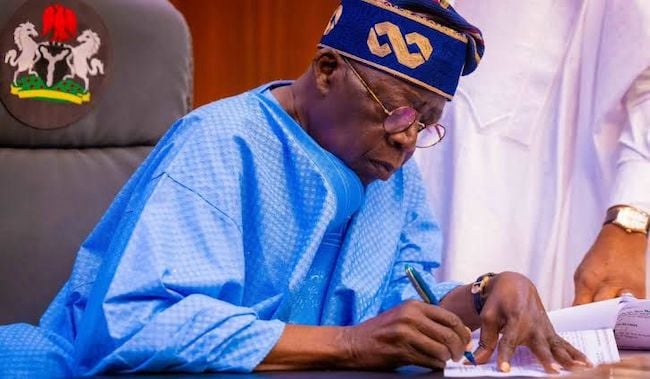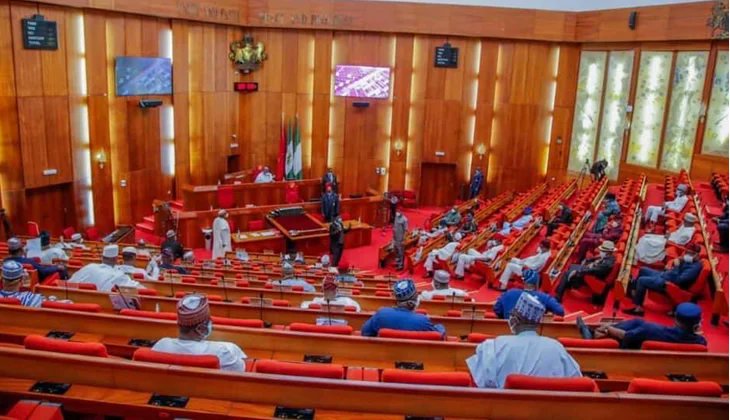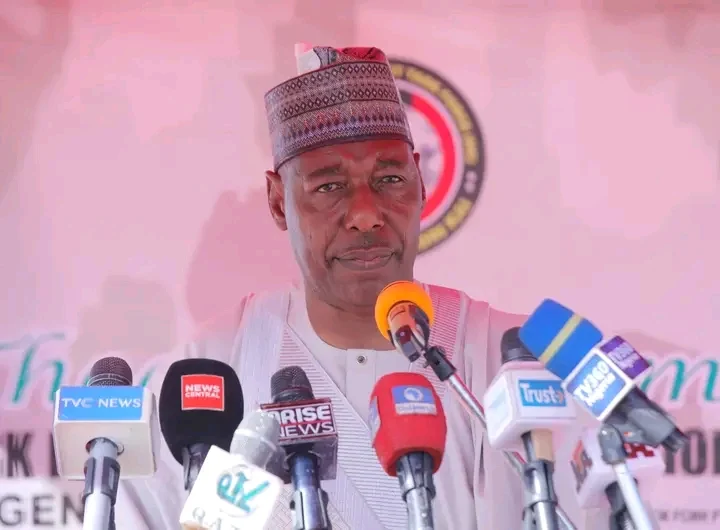Tinubu Slams 15% Import Duty on Petrol, Diesel to Protect Local Refineries

President Bola Tinubu has approved the introduction of a 15 per cent ad-valorem import duty on petrol and diesel imports into Nigeria as part of the government’s efforts to support domestic refineries and stabilise the downstream petroleum sector.
The directive, contained in a letter dated October 21, 2025, and made public on October 30, was addressed to the Federal Inland Revenue Service (FIRS) and the Nigerian Midstream and Downstream Petroleum Regulatory Authority (NMDPRA).
The letter, signed by the President’s Private Secretary, Damilotun Aderemi, followed a proposal from the Executive Chairman of FIRS, Zacch Adedeji, seeking the implementation of the new tariff under a “market-responsive import tariff framework.”
According to the document obtained on Wednesday, the new import duty will be applied to the cost, insurance, and freight (CIF) value of petrol and diesel imports, aligning import costs with the realities of the domestic market.
Adedeji, in his proposal to the President, described the policy as part of ongoing reforms aimed at encouraging local refining, maintaining price stability, and strengthening the naira-based oil economy.
He said the move aligns with the administration’s Renewed Hope Agenda, which focuses on achieving energy security and fiscal sustainability.
“The goal of this initiative is to operationalise crude transactions in local currency, enhance local refining capacity, and ensure a stable and affordable fuel supply nationwide,” Adedeji explained.
He noted that the current disparity between locally refined products and import parity pricing has created volatility in the downstream market.
“While domestic diesel refining has reached self-sufficiency and petrol output is growing, instability remains due to misalignment between local refiners and fuel importers,” he wrote.
The FIRS boss further warned that the import parity pricing model, used to determine pump prices, often falls below cost recovery for local producers—especially during foreign exchange fluctuations—thereby threatening the viability of emerging refineries.
Adedeji emphasised that the government’s responsibility was to protect both consumers and domestic refiners from unfair market practices.
“This framework will discourage duty-free imports that undermine local producers and will foster fair competition in the downstream sector,” he said.
Projections in the letter suggest the 15 per cent import duty could raise the landing cost of petrol by about ₦99.72 per litre. Despite this, the expected pump price in Lagos is estimated at around ₦964.72 per litre ($0.62), still considerably lower than in neighbouring countries such as Senegal ($1.76), Côte d’Ivoire ($1.52), and Ghana ($1.37).
The policy forms part of Nigeria’s broader strategy to cut reliance on fuel imports and boost domestic production capacity. The 650,000 barrels-per-day Dangote Refinery has begun producing diesel and aviation fuel, while modular refineries in Edo, Rivers, and Imo states have also commenced small-scale petrol refining.
Nonetheless, imported petrol still accounts for roughly 67 per cent of national consumption, underscoring the importance of policies designed to strengthen local refining and stabilise the nation’s fuel market.









